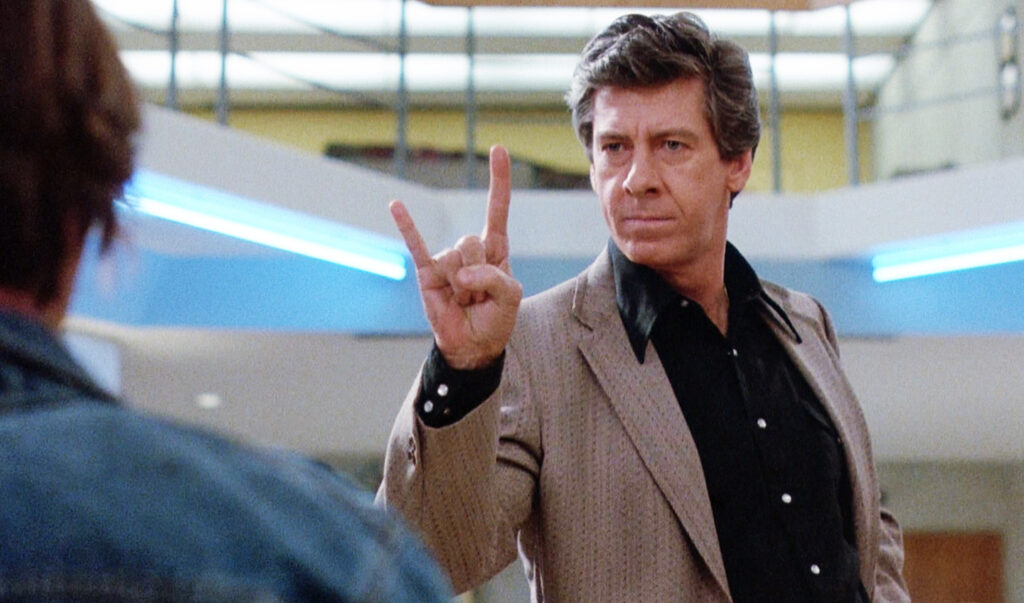Adultism: How This Discriminatory Practice Has Shaped Our Schools
What is adultism and how has it shaped our society? It's especially prevalent in our school systems where students have little input

Ever look at a kid and think that you know better than them just because you are an adult? Ever scoff at a teenager for what they are trying to espouse or what they are doing? Well, while these might seem like time-honored traditions of growing up, there could be something much larger at play. And it’s something we are potentially seeing in families, schools, and society as a whole. Adultism has become a topic that’s come up more of late with more and more folks tuning into the idea that adults hold a certain systemic belief structure that causes them to view younger people in a negative light.
And while this might just be a hallmark of growing older, there are those out in the world who believe this is having a negative societal impact. Could the idea and “practice” of adultism be causing us more problems as a collective? Is it harming our school systems and families in a way that pits different ages against each other? There are definitely examples where this line of thinking is considerably more pervasive than one might believe.
What Is The Meaning Of Adultism?
On a higher level, or by its strict definition, adultism refers to prejudice or discrimination against young people as a group. This obviously takes a number of different forms, some of which we will definitely get to. But for simplicity’s sake, the idea that adults not only view children as younger but also worse is at the heart of adultism. It’s one thing for an adult to believe they have the wisdom to impart to someone younger or the ability to build up youth with knowledge and support. It’s completely another thing to see this group as lesser and actively discriminate against them in different situations. In this way, adultism is an incredibly negative term, in line with other -isms that single out a group (or groups) of people in a prejudiced way.
And this isn’t a new thing either. The ideas behind adultism go back about a century though it’s morphed over time to its current form which came about in the 1970s. And since then it has made its way into discussions about really all aspects of our society. The easiest form of this would be within the family wherein a parent or parents see their role as lording over children and youth because of the latter’s lack of status, intelligence, or just generally being younger. But there are examples in education, the legal system, governmental laws and rules, religious groups, really everywhere.
What Is An Example Of Adultism In Schools?

The bad news is that when you go looking for examples of adultism in our society and really our world, they are incredibly easy to find. Honestly, once you see them it’s hard to unsee, and at times, incredibly difficult to justify. Let’s start with the school system wherein it’s often easiest to find ways adultism has become pervasive in this system. Legally, the idea behind compulsory schooling, in and of itself, could be seen as adultism. If the kids (or students) are given little to no say in whether classical education is “right” for them, one could argue pretty easy they are being discriminated against based on age. A detractor might say something like, “kids don’t know what they don’t know and it’s our job to teach them.” This sounds well and good (I suppose) but adultism still comes in further down the educational chain.
For instance, within schools, students and youth have little to no input in the educational process, what they learn, who teaches them, the materials used, and so on and so forth. Adultism has been legislated throughout a school system to ensure that the teachers and higher-ups are the only ones with real input in the educational process (such as it were). Many adults will okay this process because it’s so ingrained in our society that it simply seems “normal” at this point. But taking a bird’s eye view will actually show that adultism is hard at work within schools. Children and youth are seen as lessers, their input not valid or needed at all.
Anytime you hear something like “Such and such happened to me when I was a child and I turned out fine,” could likely be considered a form of adultism especially if the “such and such” part is a decidedly negative or even abusive thing. Okaying a behavior perpetrated against a child simply because you are now an adult and it was done to you is a classic example of this behavior and belief system.
What Is A Societal Example?

Again, there are many (many!) of these when you start looking for them, but another classic one beyond the school system is seen in how we treat teenagers around certain rules and regulations within our society. For instance, across the United States, the voting age is 18 years old which is also when someone can sign up for military service. All well and good, right? Well, now compare that to the drinking age which is 21 years old? Why would there be a three-year difference in these two ages when the stakes are all pretty high leverage. Removing how much a vote “counts” I think we can agree that being a part of the process shows that we “trust” our youth with making high-level decisions around who will govern.
And then there is the military piece which has about the highest stakes of all. We would consider military service a life or death venture with about the biggest sacrifice of all. But how could the same society then place the drinking of alcohol in a different age class? It stems from adultism which dictates that youth can be trusted with some things and not all. That adults still need to decide the proper age for when it’s “ok” to partake in this other thing, while agreeing voting and military service are fine at 18. See the disconnect? And again, it’s not good enough to say something along the lines of this is how it’s always been done. Not in terms of reasonable explanations at least that don’t come of prejudiced in some way.
These are just the “popular” examples of adultism. Others would include curfews, mandatory birth control, over-medication based on behavior-related diagnosis, and age of consent.
What Is The Difference Between Ageism And Adultism?
In a general sense, adultism is a form of ageism in that the latter refers simply to being prejudiced or discriminating against people of a certain age. But that term is almost now exclusively used when this practice happens against the old or elderly. Adultism is essentially a sub-class of ageism even though the latter should be used throughout. But because it’s been co-opted then drilling down and calling this practice of adults against kids “adultism” is easier from a labeling perspective.
What Are The Effects?
The truly negative effects of adultism, when it plays out to terrible conclusions can be things like child marriage, military conscription (a draft process or mandatory service), or child labor abuses. These along with just abuse within a family as a form of punishment or “discipline” are other ways we see this in its worst form.
But we see in our school systems that one major effect of adultism is a distrust in the adults and the system as a whole. When students and youth see the clear disconnect between the educational system and the world around them, combined with the lack of input on their part, there becomes an apathy and distrust across a certain (not small) segment of the population.



